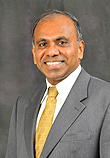Remarks

Good afternoon. Thank you for being here. I am honored that Acting Secretary of Commerce Becky Blank and presidential science advisor John Holdren are among our many distinguished guests who are here today.
Before I start, I would like to let you know that this will be a two-part program, and we ask you to please stay in your seats after the First Lady's remarks. At that time, we will hear a panel of guests who will delve further into today's important topic.
Today, I am very happy to announce the launch of an exciting new undertaking at the National Science Foundation, the Career-Life Balance Initiative.
This activity will enhance existing NSF policies and practices -- and implement new ones over time -- subject to budget reality of course -- to provide flexibility for aspiring graduate students, postdocs and researchers whom we support. This initiative is intended to advance the nation's ability to recruit and retain talented scientists and engineers here at home in the U.S. in our educational institutions. It will help advance them to leadership positions in academia, in industry and in public service.
This is an important step in NSF's quest, the Administration's quest -- and really, everyone's quest -- to establish a better balance between the responsibilities and demands of work lives and family lives.
This initiative offers equal benefits to men and women developing careers. They will prove especially valuable to women, who, more often than not, are the ones who suspend or surrender promising professional careers to take on the responsibilities associated with starting a family and caring for dependent family members.
Why is this important? We need strategies that broaden the participation of those who are underrepresented especially in science, technology, engineering and math, or STEM. These strategies -- to tap the historically underrepresented talent of women, minorities and persons with disabilities -- are essential to our future innovation, economic prosperity and global leadership. Today's announcements represent one such strategy.
NSF cannot do this alone. Given its pivotal role as a major funder of the nation's fundamental scientific enterprise, NSF bears responsibility to help workplaces creatively enable scientists and engineers to meet career and family demands.
As women weigh career aspirations against conflicting life events -- such as the birth or adoption of a child, duties of raising children and providing elder care -- family-friendly policies help prevent them from being forced to make difficult decisions. They should not have to choose between their baby and the lab bench.
Family formation, notably marriage and childbirth, accounts for the major loss of female talent from the job pool between the receipt of a PhD and achievement of a tenured position in the sciences.
The statistics are overwhelming. Women account for about 41 percent of all new PhDs in science and engineering, but their share of full-time tenured or tenure-track positions in academia is only about 28 percent.
Following today's announcement, we will raise the visibility of existing policies and systematically incorporate them into proposal solicitations and grant reviews to make them systemic in the grant award process.
For the sake of time, I mention just a few examples:
- Existing policies to become more systemic include no-cost extensions of awards and flexible start dates for new awards for accommodation of key life events.
- We will provide grant supplements for research technicians to sustain ongoing research when investigators need to provide family care. We will collaborate with our higher-education partners such as the Association of American Universities and Association of Public and Land Grant Universities, as well as with professional societies and other associations, such as the American Association of University Women, industry, and other government agencies, to facilitate the provision of parental medical leave, accommodations for dual-career couples, and part-time options. Effective immediately, NSF will incorporate family-friendly practices and policies in NSFs CAREER program, which is for young faculty members, and all post-doctoral programs.
- And, in the future, subject to budget realities, we will integrate work-life balance practices into additional programs, including the Graduate Research Fellowship program and the ADVANCE program.
- Our goal is to implement these policies and practices throughout the entire portfolio of NSF activities and to better integrate their use, as consistent with federal guidelines.
These policies will preserve human capital in science and engineering while enhancing job availability and security for hard-working Americans in some of the highest growth fields.
NSF and others in the Administration are also engaging the academic and science and engineering communities. We are pleased that a number of professional organizations and private entities are announcing related efforts concurrently.
In closing, let me relay some real-life testament to the value of this initiative, as we congratulate one of our NSF postdoctoral awardees, Zoe Courville. Zoe cannot be with us today because she, in fact, is expecting a new baby any day now. She made the difficult choice to not deliver her baby at this White House event.
But as one of the first grantees to take advantage of NSF's expanded family-friendly policies, she is NOT going to have to make a choice between being a good mom and being a great geoscience engineer.
Zoe, if you are watching the webcast, congratulations, both on the baby and on your career.
So with that, I thank you and I turn this over to a special guest, Ms. Michelle Del Rio, who is a graduate student at the Foster School of Medicine at Texas Tech Health Science Center. She is the President of the Association of Women in Science, El Paso chapter, and she works very closely with underprivileged youth in Hispanic communities. Michelle Del Rio.


